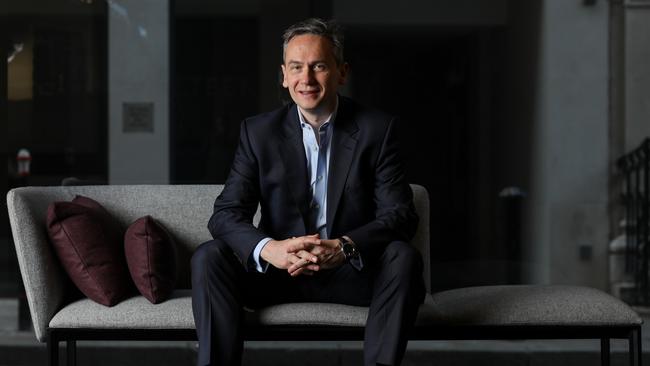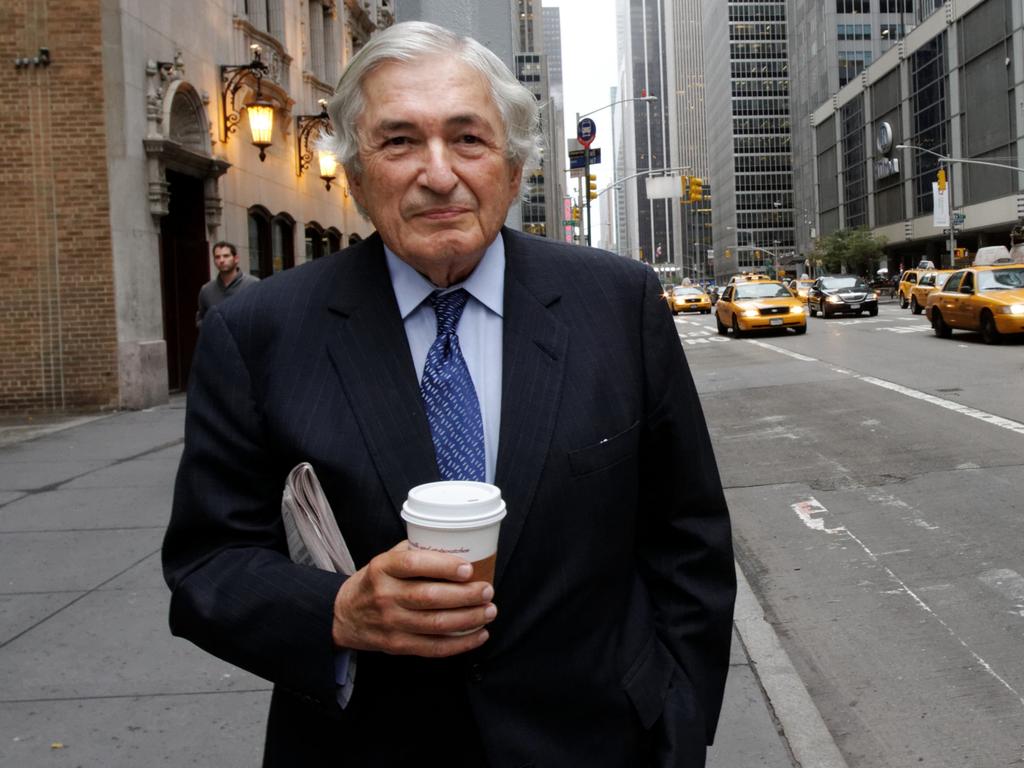2020 the year of long knives in boardroom as CEOs tumble

Investors might be forgiven for thinking that pandemic pressure caused this annus horribilis for some of our most well-known top 100 companies, but no. With the exception of Virgin, what stands out like the proverbial is a straight lack of judgment. Decision making, either by the individual themselves or within the business for which they were rightly accountable.
Top-floor casualties, the most in a decade, made for salacious headlines in 2020.
“Yes, a record,” agrees the chair of the Australian Shareholders Association, Allan Goldin. “A variety of scandals, some of a sexual nature, inappropriate behaviour and some not necessarily a scandal but from a shareholder point of view, very poor behaviour. People lost money. I’d call that a scandal.”
Top of Goldin’s list is JS Jacques’ fall from grace at Rio, which inexcusably blew up 46,000 years of prized Indigenous heritage at Juukan Gorge in Western Australia.
“It seemed so insensitive. Actually, this wasn’t a case that shareholders lost money, but the outrage of people,” he says.
“It’s because retail shareholders are long-term shareholders, so we obviously want to make money, but believe in investing in good companies, so seeing something like this, it hurts. J-S rightfully fell on his sword.”
Shareholders did take a hit at building products business Boral under Mike Kane. The American CEO, lauded early in his term for taking on the Australian unions, then overreached with a foray into the US market that also involved a “creative accounting” scandal at a windows division.
“Kane’s mistake, and we see it often with Australian companies, was an overexuberance on overseas markets,” Goldin says. “And because he was an American, the thinking was he must know what’s right in the US, we’re going to have this great advantage.”
Australia has certainly had success in overseas markets, but Goldin says that all too often ambitious managers come a cropper, most dramatically in recent times with Bunnings in the UK. Now with new and active investors on the share register, Boral is selling down US assets and the share price is back above what it was at the start of the year.
To label Crown Resort a scandal might be kind. Executive chairman John Alexander resigned in January.
Running back to the shock arrests of Crown staff operating illegally in China in late 2016, a subsequent inquiry has so far found that Crown partnered with junket operators with links to organised crime, ignored risks around money laundering and that governance involving shareholder James Packer was compromised.
What seems to have blindsided leaders most is the handling of unacceptable behaviour in the workplace. At AMP, chief executive Francesco de Ferrari was brought on board to repair the business after the royal commission exposed serious failings in financial advice. What he wasn’t prepared for was not one but two sex scandals involving senior management.
First, the handling of the Boe Pahari sexual harassment scandal, and second, the CEO’s own hand-picked head of AMP Australia, Alex Wade, caught up in other allegedly lurid behaviour.
De Ferrari has fixed bayonets and gone over the top in a battle for the grand old AMP’s very survival. The casualty has been the AMP chairman. David Murray, former CEO of Commonwealth Bank and head of the Financial Systems Inquiry, resigned in August.
Views differ as to why he took the decision. “I really do think he took responsibility,” says Goldin, “and here we’re talking about someone who is definitely not a shareholder’s friend. At CBA, he believed that having an AGM was a waste of time, but to be fair to him, he was honourable enough to say ‘this was just a mess, I’ve not done much to improve it’.”
The well-covered scandal at Nine Entertainment moved from the sublime to the ridiculous and cost CEO Hugh Marks his job. Having managed the merger of Nine with Fairfax successfully, Marks was riding high in the saddle. He too came a cropper over an in-house relationship with one of his direct reports.
Fund manager Peter Morgan sees the huge shift in leadership in 2020 reflecting a rise in pressure on boards from disappointed shareholders, but he says it also highlights how little internal planning has been happening around succession on boards.
“A lot of them are bumbling around: Nine, Crown and Taborp, it’s a bit the same,” Morgan says.
Does any of this matter though, especially where the share price seems unaffected?
“It is internally unsettling which is not great,” Morgan says, suggesting that a business like Rio is hard to stuff up with its strong asset base — “Short of saying something stupid to the Chinese,” he quips. “Contrast that if you lost Elon Musk at Tesla or [Jeff] Bezos at Amazon. But contrast it as well with CSL, which has never lost a CEO and probably has the most under-publicised board in Australia.”
One consolation, Goldin says, is that except in the case of Crown where the board seemed to bluff it out, directors have read the writing on the wall: “Too often, boards don’t rein themselves in: the number of times we see a problem or scandal, yet it is very rare that we see a chair say ‘I take responsibility’,” he says.
One casualty who can fairly blame COVID-19 for his demise is Virgin Australia’s former CEO Paul Scurrah — COVID and private equity. Scurrah was ditched by the new owner, Bain Capital, after the airline ran out of operational runway when borders closed. He was replaced by former Jetstar and a2 Milk CEO Jayne Hrdlicka, who had been on the Bain ticket.
“Anyone who wants to believe private equity as white knights, well maybe you get what you deserve,” says Goldin. Having been widely credited with holding the airline together through administration and the sale, it is unclear whether Scurrah thought he could survive under the new owners.
While Scurrah has been linked to the top job at Australia Post (following the sudden exit of Christine Holgate early last month), on Friday he ruled himself out of contention.
The Cartier watch scandal that brought down Holgate was bizarre. The gift of four watches as a bonus to staff for securing a banking deal happened in 2018. Gold watch rewards for managers in a taxpayer-funded, union-influenced business may have been a poor choice. Unfortunately for Holgate, the Labor/union-inspired sting during a parliamentary committee in the midst of COVID-19 led to a humiliating excoriation from Scott Morrison on the floor of parliament. “We are the shareholders of Australia Post on behalf of the Australian people. She has been instructed to stand aside, if she doesn’t wish to do that, she can go.” On reflection, the Prime Minister surely would admit that he too could have handled the matter very differently.
Coming right at the time of the Aussie Post scandal, ASIC chief executive James Shipton’s moving expenses drama cost him dearly. He has now stepped aside pending the results of an inquiry, to the shock of most on the top floor. As the chief corporate cop, Shipton’s personal activities needed to be beyond reproach. He quickly realised a public haggling over expenses would not play out well, but that was after the fact.
For most business leaders, 2020 and the pandemic has tested them more than ever before, but with or without COVID-19, the trap doors in the top floor are all set and so easy to spring with any sloppy move.







AMP, ASIC, Australia Post, Boral, Crown, Nine, Rio Tinto and Virgin Australia all lost their business chiefs this year in a decimation of the top floor. It puts last year’s royal commission clean-out of the big banks in the shade.